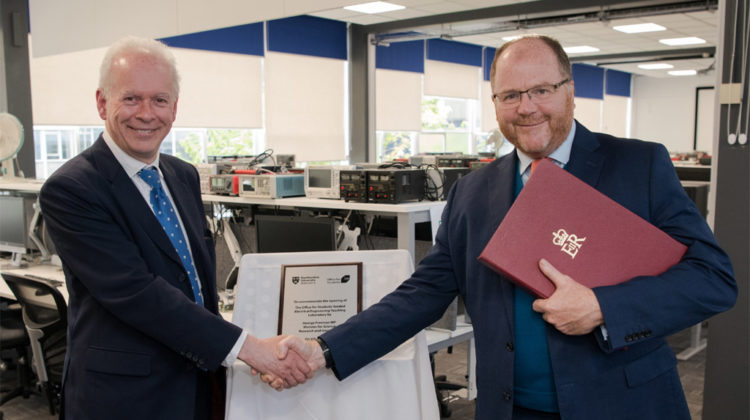
Northumbria University in Newcastle has officially opened its new world-class engineering teaching facilities.
Thanks to £2million of funding from the Office of Students, the university was able to expand, refurbish and install new equipment to develop state of the art teaching laboratories for programmes in mathematics, physics and electrical engineering.
Among the new facilities are a 120-seat microelectronics and communications Laboratory with 100 individual workspaces with oscilloscopes, embedded circuit systems, benchtop control electronics and IT, as well as a group-work space for live industry projects being carried out in collaboration with telecommunications and microelectronics firms.
The university is also enhancing its Power Electronics laboratory, providing new microgrids, motor and renewables testing equipment and facilities for teaching and assessing modules in renewable energy generation and power transmission.
Northumbria’s reputation as a sector-leading centre for battery technologies research has been further enhanced with improvements to its battery technology laboratory, including new cell-assembly facilities and environmental testing that can be used for specialist teaching in conjunction with established partners, such as Nissan, Hitachi and BritishVolt.
Further works will also see the refurbishment of an existing teaching laboratory to provide a new satellite engineering laboratory that will include new thermal-vacuum, vibration and radiation testing chambers that can be used for specialist teaching to provide the skills needed in the UK space sector.
In addition, the funding will allow the refurbishment of existing areas to create a new 120-seat engineering IT hub to support laboratory teaching with additional investment in digital facilities and high-performance computing for modelling work.
‘Northumbria University continues to respond to global challenges, providing sector-leading learning with a strong focus on renewable energies, battery and satellite technologies,’ said Professor Andrew Wathey, the university’s vice-chancellor and chief executive. ‘This funding award from the Office for Students will hugely benefit our students as we continue to provide them with the knowledge and understanding to help shape the future.’


